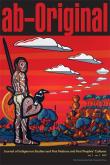 6683395902391581015.jpg
6683395902391581015.jpg
 6683395902391581015.jpg
6683395902391581015.jpg
'An Indigenous prison requests show in Perth, Western Australia, Inside Out has emerged as a response to the disproportionately high incarceration rates of Indigenous people in the state and is the most popular show on the community broadcaster Noongar Radio, airing across twelve prisons with more than 270 requests per week. Incorporating interviews and analysis of language and music, this article will discuss how Aboriginal people in Western Australia use Inside Out as a shared communicative resource to assist in upholding their connections to family, community, and Country, connections that can be central to Aboriginal Australian social and emotional well-being but are most often impeded by incarceration. Using language and music—mostly country music—to enact Aboriginal cultural and social connectedness, Inside Out serves vital community concerns not addressed by commercial broadcasting, while also creating representations of Aboriginal culture for non-Aboriginal listeners.'
Source: Abstract.
'Is there a correlation between the resilience of a minority language and the size of its speaker community when that community is colonized by people who speak a different language? In addressing this question in our report, we explore shared experiences of the “colonization” of our languages as Indigenous people from Pakistan and Australia. Adnan Bhatti is Saraiki from the Multan area, Punjab, Pakistan, and Jakelin Troy is Ngarigu from the New South Wales side of the Snowy Mountains region in southeastern Australia. Both pre-1947 India, from which Pakistan was partitioned, and Australia were invaded by the British and subsequently colonized. Troy's language succumbed to English in the nineteenth century, and Bhatti's language faces being overwhelmed by Urdu and, to a lesser degree, by English as well. Population migrations and government policies have adversely affected the capacity of Indigenous peoples to thrive in the use of our languages. This report draws on our larger research project to compare the experiences of minority language speakers in Australia and Pakistan. In reflecting on our own experiences, we consider government policies and a range of community, education, business, health, and media initiatives that variously support or hinder efforts to maintain or revive the use of our languages.'
Source: Abstract.